People
 |
Richard Rogers is University Professor and holds the Chair in New Media & Digital Culture at the University of Amsterdam. He is Director of Govcom.org, the group responsible for the Issue Crawler and other info-political tools, and the Digital Methods Initiative. Among other works, Rogers is author of Information Politics on the Web (MIT Press, 2004), awarded the 2005 best book of the year by the American Society of Information Science & Technology (ASIS&T) and Digital Methods (MIT Press, 2013), awarded the 2014 Outstanding Book of the Year by the International Communication Association (ICA). Issue Mapping for an Ageing Europe, written with Natalia Sanchez and Aleksandra Kil, was published by Amsterdam University Press (2015), and Doing Digital Methods (2019) is published by Sage. |
 |
Sabine Niederer Sabine Niederer is professor of Visual Methodologies at the Amsterdam University of Applied Sciences. She is also coordinator of the Digital Methods Initiative, the new media PhD program at the Department of Media Studies, University of Amsterdam. In 2014, she founded the Citizen Data Lab as an applied research lab specializing in participatory mapping of local issues. In 2016, Sabine obtained her PhD degree with the Digital Methods Initiative, supervised by Prof. dr. José van Dijck and dr. Bernhard Rieder. Sabine teaches Issue Mapping for Fashion in the international master’s programme at AMFI, the Amsterdam Fashion Institute. From 2004 until 2012, Sabine worked at the Institute of Network Cultures, with director Geert Lovink, producing many projects and publications on digital culture. |
 |
Esther Weltevrede Esther Weltevrede is associate professor of New Media and Digital Culture at the Department of Media Studies at the University of Amsterdam. Esther is also coordinating the Digital Methods Initiative, the new media research program at the department of Media Studies. Her research interests include digital methods, apps, platforms, infrastructures, automated engagements, software studies, issue mapping, devices, national web studies, and algorithm studies. |
 |
Erik Borra Erik Borra is researcher and former technical director of the Digital Methods Initiative. He is also assistant professor in Journalism and New Media at the Journalism M.A. Program as well as the New Media and Digital Culture M.A. program at the University of Amsterdam. Erik worked as a researcher and programmer in Bruno Latour's European projects on Mapping Controversies in Science and Politics (MACOSPOL) and Electronic Maps to Assist Public Science (EMAPS). His PhD research concerned the use of web data and new digital research instruments in the humanities and social sciences, and focussed on search engine queries, Wikipedia edit histories and social network profiles. |
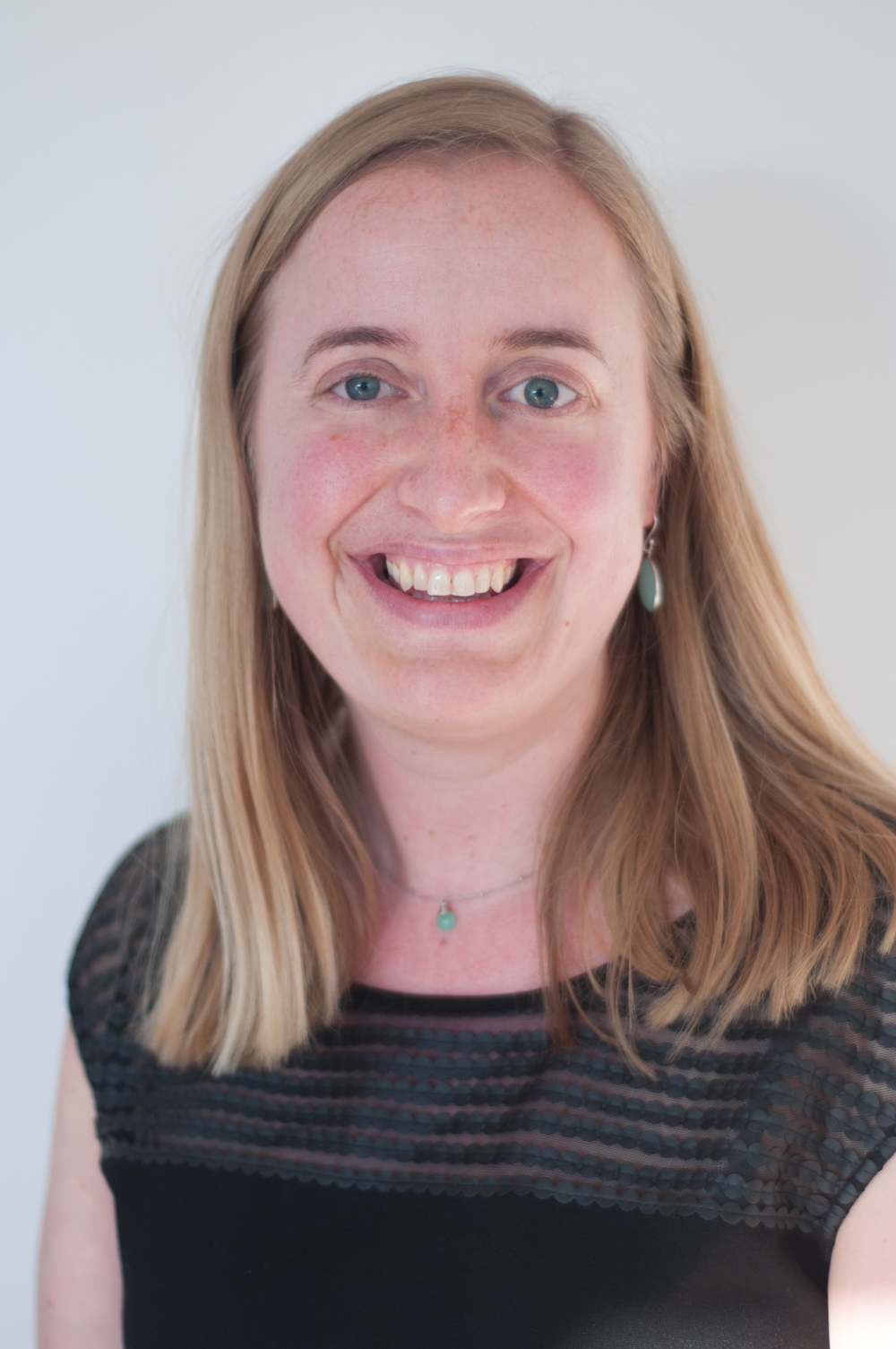 |
Anne Helmond Anne Helmond is assistant professor of New Media and Digital Culture, University of Amsterdam. She joined the Digital Methods Initiative with its initiation in 2007 as an analyst-designer. In her research she focuses on social media platforms and apps from an infrastructural perspective. Her research interests include digital methods, software studies, platform studies, app studies, infrastructure studies and web history. In her dissertation on 'The web as platform: Data flows in social media' she has developed the notion of "platformization" to understand the dual logic of social media platforms’ extension into the rest of the web and, simultaneously, their drive to make external web data “platform ready”. She currently holds a Veni grant from the Netherlands Organisation for Scientific Research (NWO) for the project ‘App ecosystems: A critical history of apps’ (2017–2020). |
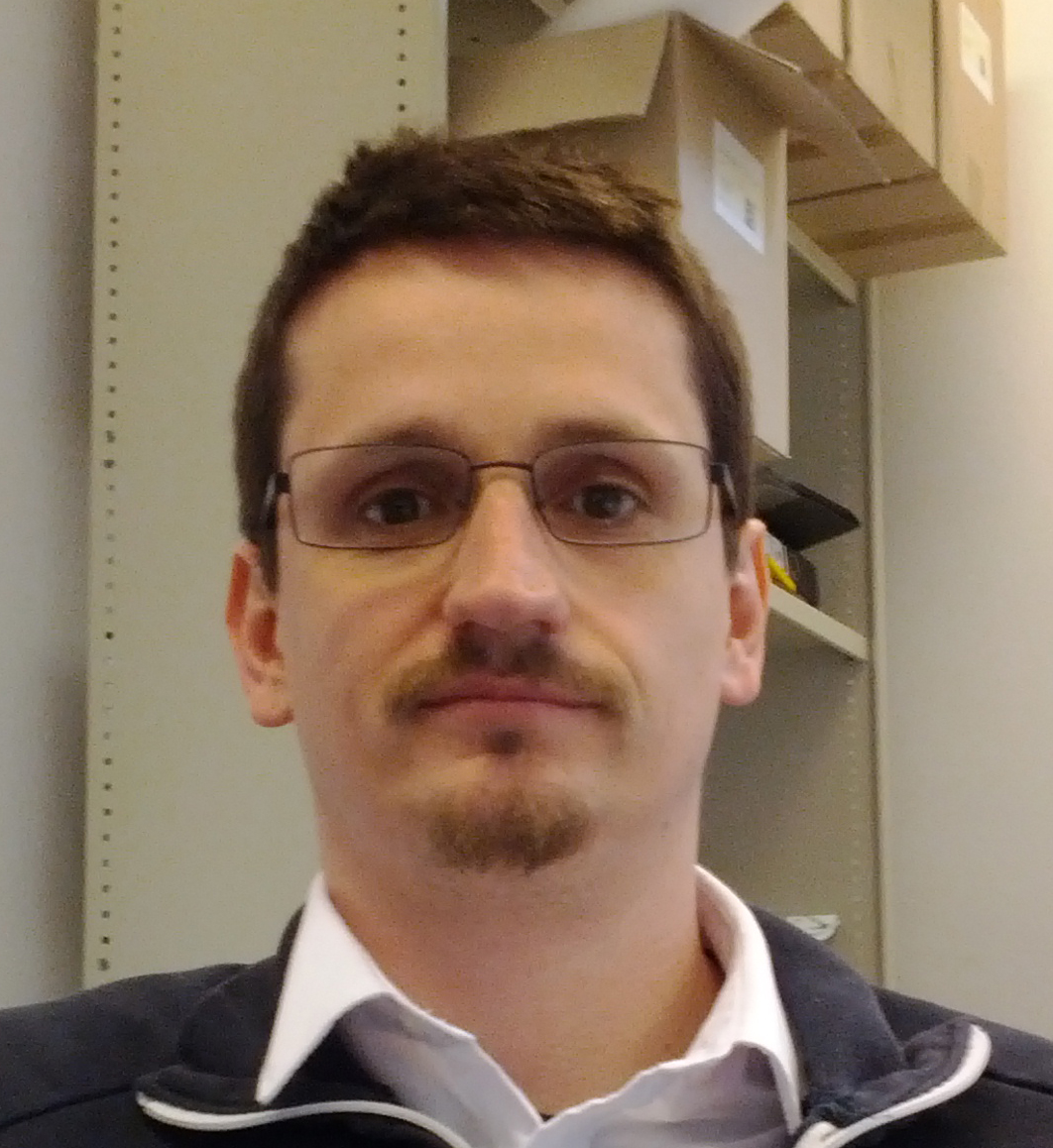 |
Bernhard Rieder Bernhard Rieder is Associate Professor of New Media at the University of Amsterdam. Besides doing digital methods based work, his research focuses on the history, theory, and politics of software, particularly on the role of algorithms in social processes and the production of knowledge. He has worked as a Web programmer on various projects and is currently working on a book that investigates the history and cultural significance of information processing techniques. |
 |
Michael Stevenson is associate professor in New Media & Digital Culture at the University of Amsterdam. He has been a researcher with the Digital Methods Initiative since 2007, where he contributes to the development of methods for web cartography (map-making), and to project and query design. In 2009, he led a workshop on using digital methods to explore historical blogospheres and other web spheres with the Internet Archive. Michael obtained his Ph.D. at the University of Amsterdam, with a dissertation on 1990s web culture. He currently holds a Veni research grant for the project 'The Web that Was.' The project focuses on the Perl programming language and its role in the history of the early web. |
 |
Carolin Gerlitz Carolin Gerlitz is Professor for Digital Media and Methods at the University of Siegen, Germany. Her work is situated at the intersection between digital culture and economic sociology with a particular interest in dynamics of social web economies. She is involved in a series of collaborative projects on social media, Facebook’s Like economy, time online, numbers, metrics, topology and digital (social) research. She completed her PhD on brands, participatory cultures and continuous economies in 2012 at the Department for Sociology at Goldsmiths, University of London and worked as Assistant Professor at the University of Amsterdam afterwards. Carolin holds a four year NWO Veni grant for her project 'Numbering Life. Measures and Metrics in Digital Media' and is PI of a project on apps and their ecologies as part of the German collaborative research centre " Media of Cooperation". |
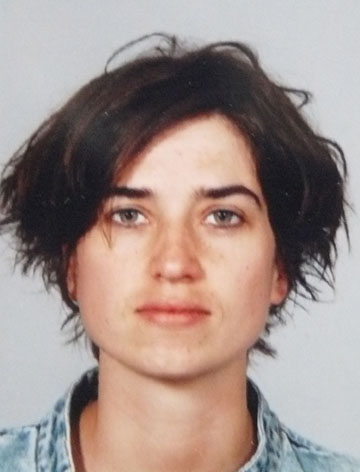 |
Lonneke van der Velden Lonneke van der Velden is a PhD candidate at the Amsterdam School for Cultural Analysis (ASCA). Her research focuses on digital surveillance and technologies of activism. She currently explores how to do Internet studies with digital methods, with special attention to tracking technologies and activism through social media. She studied Science and Technology Studies (STS) and political Philosophy at the University of Amsterdam and has an interest in how technologies inform notions of politics and in the interplay of technology and law. |
 |
Marc Tuters Marc Tuters is assistant professor in new media at the University of Amsterdam. He has two graduate degrees from Concordia (CDN) and University of Southern California (USA), and has worked as an artist and researcher in organizations including the Annenberg Centre, the Banff Centre, National University of Singapore, Waseda University. Additionally he has a background in the media arts, where he is credited with having developed the concept of "locative media". |
| |
Natalia Sanchez Querubin Natalia Sánchez Querubín, Ph.D., is Assistant Professor and Coordinator of the New Media and Digital Culture MA program at the University of Amsterdam. She works on digital media research and the intersection of social media with health stories and social issues. She is author of the book Issue Mapping for an Aging Europe with Rogers and Kil (Amsterdam University Press, 2015) and has published on the topic of cancer and vlogging (Lancet Oncology, 2019), migration studies with social media platforms (Social Media + Society, 2018), and climate change and social media (WIREs climate change, 2018). |
 |
Simeona Petkova Simeona Petkova is a PhD candidate within the Digital Methods Initiative, University of Amsterdam, where she is studying the dynamics of remembering and forgetting on the social Web. She employs digital methods with a focus on the technological specificity, time and politics of the platforms. The research is interdisciplinary, and is situated within web (platform) and memory studies in the larger framework of digital humanities. Simeona received Research Master's Degree (cum laude) in Media Studies at the University of Amsterdam, with an empirical research project on the ways social media impacts individual and cultural memories. |
 |
Nadia Dresscher-Lambertus Nadia Dresscher-Lambertus is PhD candidate and lecturer at the University of Aruba in collaboration with the Digital Methods Initiative. Her research interests lie in the field of sociology of new media, in particular the rise of social movements and the self-actualization of social media. Her research is interdisciplinary, combining and applying a sociological developmental approach and an island studies approach with digital methods. Her PhD project focusses on the way Aruba calibrates its democratic process on Facebook. She received her Master of Science (cum laude) in sociology from Rijksuniversiteit Groningen and has a background in communication and (new) media studies. |
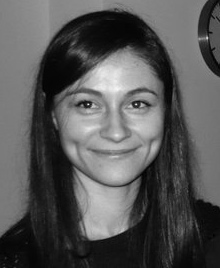 |
Liliana Bounegru is Lecturer in Digital Methods at the Department of Digital Humanities, King’s College London. Previously she was a postdoctoral research fellow at the Oxford Internet Institute (University of Oxford). Since 2013 she has been a researcher at the Digital Methods Initiative (University of Amsterdam), where she also acted as Managing Director between 2014 and 2016. She is also a research associate at the Sciences Po Paris médialab, where she was a visiting researcher and lecturer in 2016. She obtained her double PhD degree (cum laude) from the University of Groningen and Ghent University. Prior to that she studied at the University of Amsterdam and the University of Bucharest. She co-founded the Public Data Lab, a network of research labs which seeks to facilitate research, democratic engagement and public debate around the future of the data society. Her work has been published in New Media & Society, Big Data & Society, Social Media & Society, Visual Communication and Digital Journalism. She is co-editor of The Data Journalism Handbook (O’Reilly Media, 2012; University of Amsterdam Press, 2021) translated into 12 languages, and co-editor of A Field Guide to Fake News and Other Information Disorders (Public Data Lab, 2018, also available in Chinese and Japanese). More about her work can be found here. |
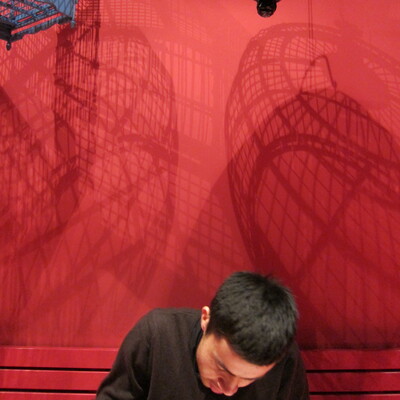 |
Jonathan Gray Jonathan Gray is Reader in Critical Infrastructure Studies at the Department of Digital Humanities, King's College London. His work explores the role of digital data, methods and infrastructures in the composition of collective life. He is also Research Associate at the Digital Methods Initiative (University of Amsterdam) and the médialab (Sciences Po, Paris) and Cofounder of the Public Data Lab. More about his work can be found at jonathangray.org and @jwyg. |
 |
Saskia Kok Saskia Kok works at the United Nations Migration Agency, IOM, in Bangladesh. She is also PhD researcher at the Digital Methods Initiative, University of Amsterdam, where she studies the spatial and territorial processes of transnational migration in the digital age. She previously worked at the Embassy of the Kingdom of the Netherlands in Dhaka, Bangladesh, in the areas of Economic and Political Affairs, Press and Cultural Affairs. Amongst others, she was responsible for coordinating a high-level conference on Sustainable Sourcing Practices in the Garment Sector, initiated by the Netherlands Minister for Trade and Development Cooperation. She received her MSc in International Public Policy at the University College London (UCL), with a graduate thesis on the transnational online networks of Somali diaspora (with Distinction). |
 |
Marloes Geboers Marloes Geboers is a PhD candidate at the UvA, member of the Digital Methods Initiative and lecturer at the Amsterdam University of Applied Sciences (AUAS), department of Media, Information and Communication. She is also affiliated to the Visual Methodologies research group of AUAS. Her research interests lie in the visual communication of solidarity across social platforms and the sharing of emotions on a platformized web. Her research blends traditional visual methodologies with digital methods approaches in order to develop novel methods that take into account both image content as well as the ways such content is audienced within networked spaces. Her work focuses on the visual communication of solidarity with Syria across platforms. She received her Master's degree in political science from Radboud University Nijmegen and has a background in journalism. |
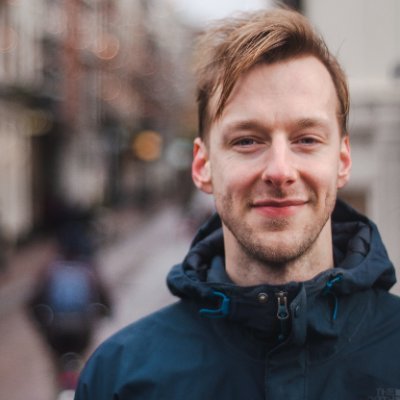 |
Fernando van der Vlist is Assistant Professor in Critical Data & AI at the University of Amsterdam (UvA), Faculty of Humanities, where he coordinates the Master’s in Cultural Data & AI. His research focuses on the critical study of digital platforms and apps, their ecosystems, data, and artificial intelligence (AI) in culture and society. He is a member of the Digital Methods Initiative and the Public Data Lab, and co-director of the App Studies Initiative. He is PI of the NWO (Dutch Research Council) Veni-funded project ‘AI Power: A Critical Platform Analysis’ (2025–2029). His work has been published in leading journals such as Big Data & Society, New Media & Society, and Social Media + Society, and he is co-editor of Governing the Digital Society: Platforms, Artificial Intelligence, and Public Values (AUP, 2025). Prior to his current position, Fernando worked as a postdoctoral researcher in the focus area ‘Governing the Digital Society’ at Utrecht University and at the DFG (German Research Foundation)-funded Collaborative Research Centre ‘Media of Cooperation’ at the University of Siegen. He received his PhD from Utrecht University in 2022 with the dissertation The Platform as Ecosystem: Configurations and Dynamics of Governance and Power . (More at fernandovandervlist.nl—or find him on X (Twitter), Bluesky, LinkedIn, and Scholar.) |
| |
Stefania Milan is associate professor of New Media and Digital Culture at the University of Amsterdam, and the Principal Investigator of the DATACTIVE project, exploring the politics of datafication from the citizen perspective (ERC Starting Grant 639379). Her work explores the intersection of digital technology, activism and governance, with a particular attention to radical internet practices. In 2014, she founded the (now inactive) Data J Lab, dedicated to big data analytics and epistemologies. Prior to joining UvA, she worked at the Central European University, Tilburg University, and the Citizen Lab at the University of Toronto. She is the author of Social Movements and Their Technologies: Wiring Social Change (Palgrave Macmillan, 2013/2016) and co-author of Media/Society (Sage, 2011). To find out what keeps Stefania busy, visit stefaniamilan.net and data-activism.net. |
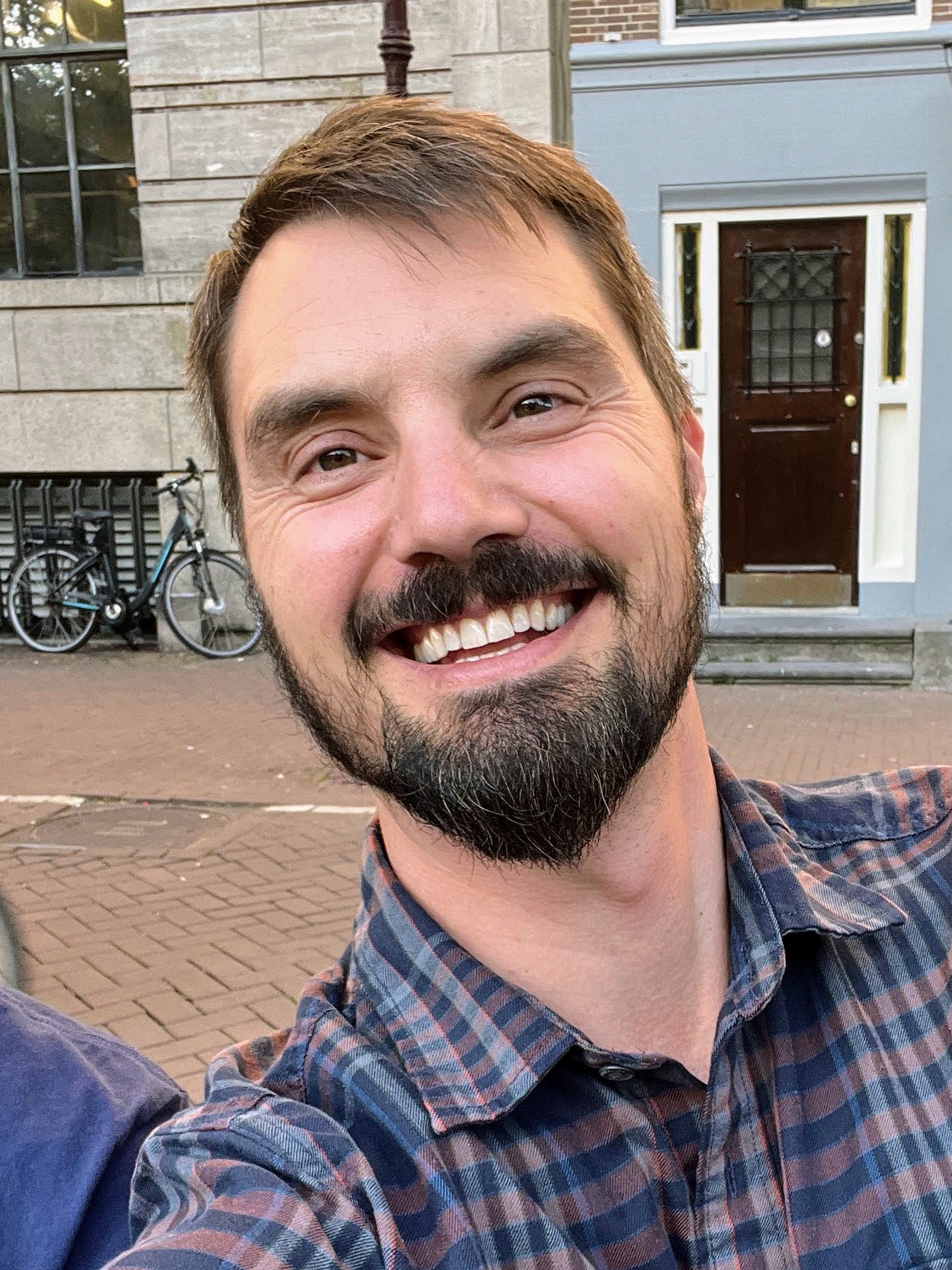 |
Dale Wahl is a developer, data engineer and analyst who helps maintain and create research and educational tools with the University of Amsterdam and the Digital Methods Initiative. He can assist with tools such as 4CAT, Zeeschuimer, and many of the others found in DMI’s toolset as well as help with more general data collection, scraping, transformation, and analysis.
|
 |
Daniël de Zeeuw is a researcher at ASCA and Assistant Professor New Media at the University of Amsterdam. He is also co-editor of Krisis: Journal for Contemporary Philosophy, affiliated researcher at the Institute of Network Cultures, and member of the Open Intelligence Lab. His research interests lie at the intersection of critical cultural and media theory and fringe internet phenomena. |
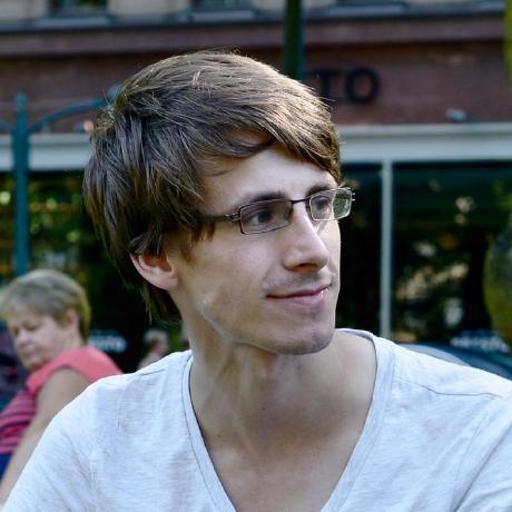 |
Stijn Peeters is an Assistant Professor at the University of Amsterdam's Media Studies department. He is additionally the Technical Director of the Digital Methods Initiative and a co-investigator of the CAT4SMR project, under which he has (co-)developed several research tools such as 4CAT. His current research interests focus on platform history and a media-archaeological analysis of fringe communities on social media platforms. |
| |
Sal Hagen is a postdoctoral researcher at the University of Amsterdam, currently working for the Deep Culture project with prof. Tobias Blanke. In 2017 he co-founded the research group OILab after which he completed his PhD research on radical subcultures online. After this he joined the CAT4SMR project as a postdoc. As part of the DMI he develops research tools like 4CAT. |
| I | Attachment | Action | Size | Date | Who | Comment |
|---|---|---|---|---|---|---|
| |
AnneHelmond-2016m.jpg | manage | 648 K | 14 Jul 2016 - 19:09 | AnneHelmond | |
| |
jwyg_red_small.jpeg | manage | 36 K | 19 Jul 2023 - 19:28 | JonathanGray | |
| |
marloes.jpg | manage | 6 K | 24 Feb 2016 - 11:33 | MarloesGeboers01 | headshot marloes |
 Copyright © by the contributing authors. All material on this collaboration platform is the property of the contributing authors.
Copyright © by the contributing authors. All material on this collaboration platform is the property of the contributing authors. Ideas, requests, problems regarding Foswiki? Send feedback


